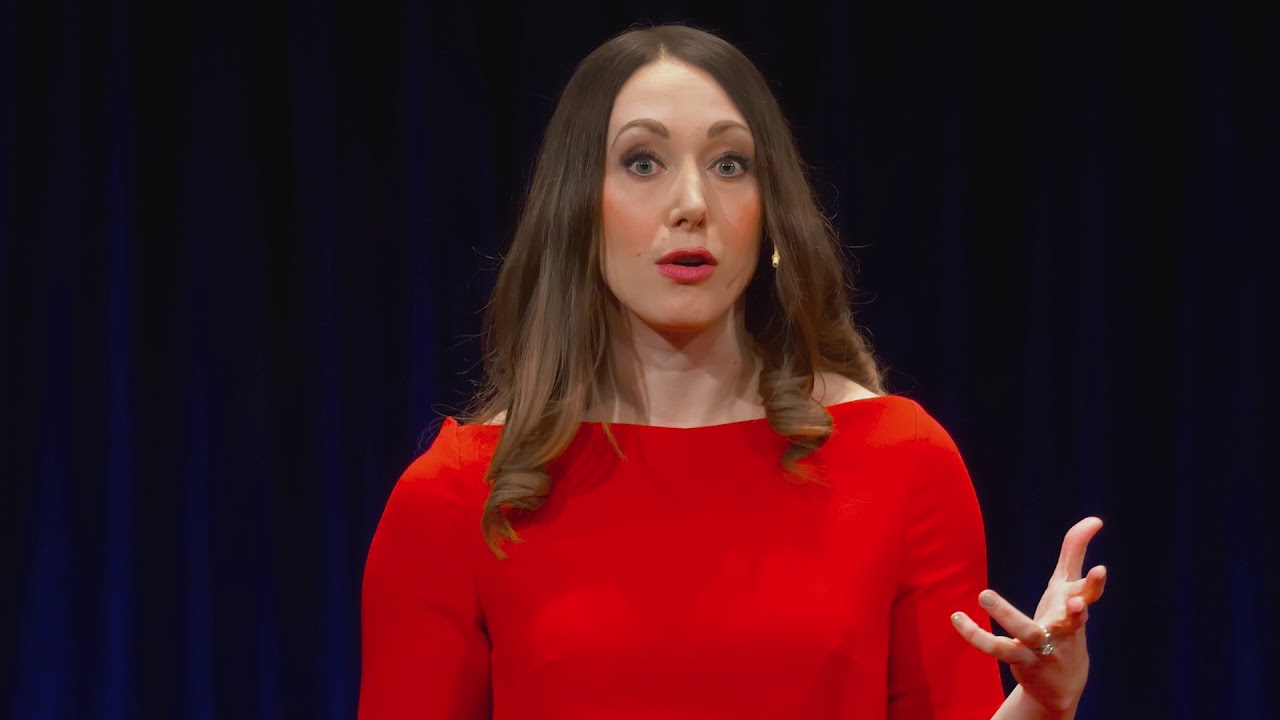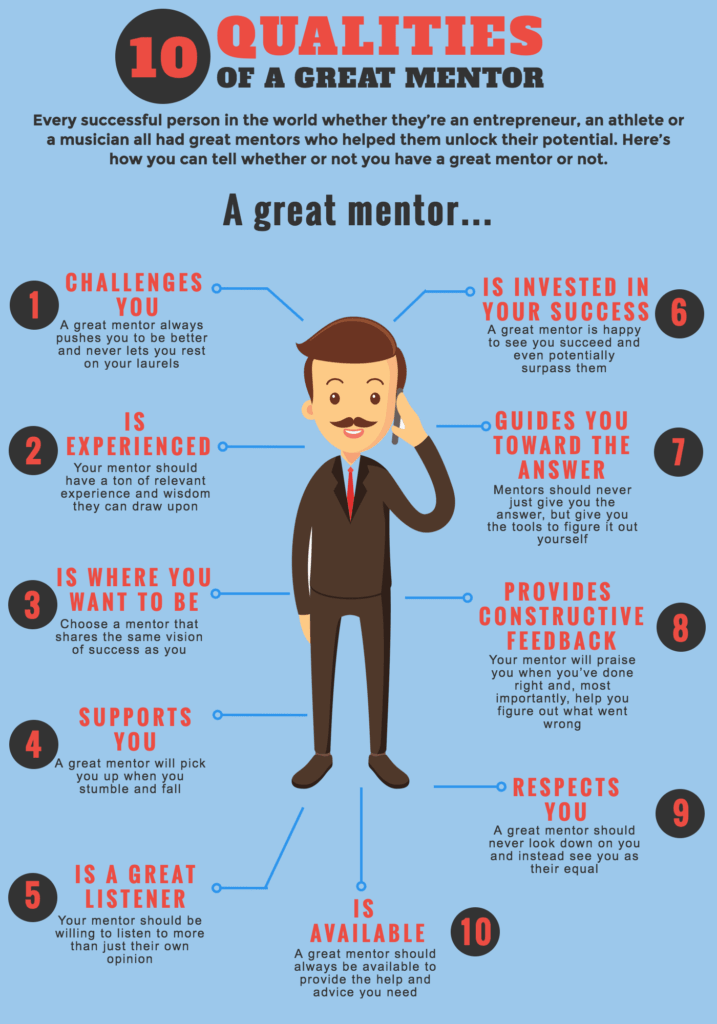How Mindfulness Can Help You Become a Better Leader
If you are looking to better yourself as a leader, mindfulness is vital. Read on to discover how mindfulness can support your journey to becoming a great leader.
What is mindfulness?
Mindfulness is a state of consciousness consisting of awareness and attention.
Dr Matthew Lippincott
Self-awareness is a skill that you can develop which has a positive impact on 90% of your results. It is the most critical skill for leaders to develop because it affects every aspect of leadership. And still, there are very few leaders who intentionally train and improve on their self-awareness on a daily basis.
In her 2018 self-awareness study, Dr Tasha Eurich found that only 10%-15% of the respondents are actually self-aware.
Why is it so hard for leaders (and anyone else for that matter) to be self-aware?
Because breaking old habits and developing new ones is very challenging.
Mindfulness is looking in the mirror and having an objective, third-person awareness of our own minds and bodies.
By definition, mindfulness training is self-awareness training, it is a systematic way of improving self-awareness.
The latest research in the field of neuroscience shows that mindfulness changes the function of the brain and its physical structure in ways that help us to be more self-aware.
We don’t need anything outside of ourselves to be happy.
Matt Tenney, Mindfulness speaker and author
Mindfulness is a trainable skill
Mindfulness is a trainable skill. You can train your mind to be happy regardless of what happens to you. It’s about giving up your own short-term self-interest so that you can help other people.
Leadership is about creating a safety zone for your employees to thrive and develop so your organization can thrive and develop.
But how can you create safety for your people if you are not able to bring safety to your mind?

How mindfulness can help you become a better leader – 4 benefits
Here are four important benefits of developing high levels of mindfulness as leaders:
1. Improving your executive decisions
As a leader, you may be prompted to make important decisions every day, decisions which affect your employees’ lives, their productivity and results.
No leader intends to make poor decisions. As a matter of fact, experts found that leaders don’t make bad decisions because they lack knowledge. They make bad decisions because of cognitive bias.
Cognitive bias means a way of thinking which causes a rational person to make an irrational or bad decision.
Mindfulness allows you to become aware of your thoughts and take an objective approach: you can take your thoughts into account if they are productive or let go of them if they are negative or toxic. This helps you make better decisions.
2. Making the other person feel like a million bucks
Have you ever talked to a person who was not paying attention to you, looking around the room or staring at you with a blank look upon their face? Or worse, taking their smartphone and browsing on the internet.
It’s not only rude, but it’s also hurtful. It makes you feel like you don’t matter to that person and he/she doesn’t care about you.
Have you experienced the other way around? Have you ever talked to a leader who gave you their full attention, listened to you intently, asking clarifying questions?
It makes you feel like you matter and you are worthy. It’s uplifting and inspiring. You feel like you could follow that person to the end of the world and help him achieve his dream. It’s very powerful and it is what leadership should feel like.
Such a level of attention and commitment can only be achieved through mindfulness. It means being present at the moment in a non-judgemental way.
3. Empathy
Improving your empathy is important if you are a leader.
It means being open and hearing what your employees need to thrive and how you can help them get it. This way you are setting the required environment for your employees to be productive and bring in positive results. It’s what makes for good leadership.
4. Personal growth
Are you having toxic thoughts?
Is your mind constantly driving you towards your past?
Do you feel compelled to pursue perfection?
If your answer is Yes then you have just taken the first step on the path to mindfulness. Being aware of your thoughts, negative or positive means you have acquired objectivity, therefore, you are now in a position to address your thoughts and change your frame of mind.
It’s about taking control of your mind and not allowing your thoughts to distract you.
What comes next is personal growth and development.
Join the Conversation
We’d love to hear what you have to say.
Get in touch with us on Facebook Group and Twitter.
A New Year, A New Me – 7 Effective Steps To Achieve Growth in 2019
Picture your favorite tree. In order to grow tall and develop a rich and lush canopy, the tree needs strong roots.
It’s the same for your business. Your business’s development and ultimate success are linked to your own personal growth.
Growth is the conscious pursuit of expanding self-awareness, knowledge and improving personal skills.
Here are 7 effective steps to achieve growth in 2019:
1. Monitor your self-talk
According to Psychology Today, your self-talk combines your conscious thoughts with your unconscious beliefs and biases. It’s an effective way for your brain to interpret and process your daily experiences.
Acknowledge your self-talk and monitor it: what does it tell you?
Do you tell yourself you can’t do something, that you’re stupid, ugly or that you’re not good enough?
If you do, know you have a negative self-talk and you need to work on yourself to change it.
Is your negative self-talk self-grown or is it something that has been told to you repeatedly while growing up? If the latter is true, your negative and deprecating self-talk is not really yours so why carry someone else’s emotional problems? Let go! Seek professional support to help you get rid of your emotional burden.
Learn more about negative self-talk and how to improve your life:
Self-Awareness: 5 Tactics To Improve It
2. Improve your discipline by adopting a No. Excuses. Mindset
I’m tired…I don’t have any money… I’m too old to start a business of my own… It’s too cold outside to go running… I’m not ready…
Have you ever told yourself any of the above or something along the lines? Although you’ve set yourself on the path for achieving your goal, you find yourself making excuses for not doing the work you need to do.
Excuses are exits signs off the freeway of life. Every time you make an excuse you basically stop where you’re going and you’ve delayed that vision, that destination that you so anxiously wanted to get to. When you’re making excuses you’re exiting from your dream.
Johh Maxwell
Why do we make excuses?
The main reason is fear. Fear of failure, fear of the unknown, fear of changing our lives, fear of making mistakes while inertia and complacency get the better of us.
Do you want to stop making excuses?
Here’s one single argument that will surely drive you right back: regrets. Having regrets of not doing everything you could have done to reach your full potential is painful and emotionally tormenting.
This is the conclusion latest research has revealed: people regret not being all they could have been.
We have one life. Stop making excuses. Or else you will spend your twilight years feeling regret for not becoming the person you know you could have become if only you had tried.
[bctt tweet=”Growth takes time. It’s all on you. You may have people around you supporting your pursuit of growth, but you will do all the work.” username=”brand_minds”]
3. Read the right books. Educate yourself.
Once you have decided the area on which you need to grow (whether it’s improving your communication skills, soft skills, develop a particular ability or nurture your talent), make a list of all the books that can help you reach your goal.
The most successful entrepreneurs didn’t wait for school classes to teach them, they were self-taught. Elon Musk, Jan Koum and Stewart Butterfield learned how to program by reading books and manuals on the subject. All three of them are now running billion dollar tech companies.
[bctt tweet=”Growth is painful. Change is painful. But nothing is as painful as staying stuck where you do not belong. N. R. Narayana Murthy” username=”brand_minds”]
4. Exercise self-awareness
What is self-awareness? Search for an answer to this question on Google and you get 453 million results. It’s a huge number which shows high interest for this subject.
Here’s another interesting number: a 2011 report estimated that there are 8.7 million species on Earth. Out of which only eight have self-awareness. These species are: humans, bonobos, orangutans, dolphins, orcas, some elephants, magpies and trained pigeons.
You would think self-awareness is a common ability among humans, the most intelligent species on Earth. Actually as dr Tasha Eurich has discovered, self-awareness is on short supply.
Dr. Tasha Eurich is an organizational psychologist and executive coach, with a 15-year professional experience witnessing the power of self-awareness in leadership. Dr. Eurich found a surprising discrepancy between believing to be self-aware and actually being self-aware: even though most people believe they are self-aware, only 10-15% of the people we studied actually fit the criteria.
To achieve growth in the area of your choosing, you need first to know and understand your own self.
Self-awareness gives us power. We might not always like what we see, but there’s a comfort in knowing ourselves. There’s a ton of research showing that people who are self-aware are more fulfilled, they have stronger relationships, they’re more creative, they’re more confident and better communicators. They’re less likely to lie, cheat and steal; they perform better at work and they’re more promotable. And they’re more effective leaders with more profitable companies.
Dr. Tasha Eurich
Listen to Dr. Eurich talking about how you can increase your self-awareness with one simple fix:
5. Learn to set goals correctly
In his book, The Motivation Myth, author Jeff Haden shows that motivation is not the secret ingredient of success. In fact motivation is a result of the process which leads to success, not the cause. The path to success is not paved with motivation, but with goals. Only not everyone knows how to set goals correctly.
Here is how to set goals in order to achieve growth successfully according to Jeff Haden via his article:
- Make your goal tangible, specific and easily measurable;
- Make your goal meaningful to you, not to others;
- Make your goal a positive goal;
- Focus on the daily process.
[bctt tweet=”Growth is never by mere chance; it is the result of forces working together. James Cash Penney” username=”brand_minds”]
6. Discover mentors online and connect with them offline
[bctt tweet=”If you ask any successful businessperson, they will always (say they) have had a great mentor at some point along the road. Sir Richard Branson” username=”brand_minds”]
We grow faster and become successful when we receive support and guidance from a more experienced person. Sometimes we cannot find the answer to our questions in books so a mentorship is the best solution.
Sir Richard Branson had Sir Freddie Laker, the entrepreneurs who revolutionized the airline industry by offering the first low-cost commercial transatlantic flights to guide him through rough times at Virgin Atlantic. The relationship between Bill Gates and Warren Buffett is well-known and both of them learned from each other. Mark Zuckerberg turned to Steve Jobs for advice on how to build the best team capable of changing the world.
There is a lot of information on how to choose the best mentor for your needs and where to find this mentor. You can also learn how to approach your chosen mentor and how to build a great relationship. You can start looking on LinkedIn or dedicated resources such as micromentor.org or going to industry events and conferences. You may not find your mentor tomorrow, but hang in there, my young padawan! If you are resilient you will find your Yoda.
Another way to grow is to become member of a mastermind group.
Napoleon Hill introduced the concept of mastermind groups in his 1937 book Think and Grow Rich. Mastermind groups are peer-to-peer groups whose members support, teach and help each other grow and solve problems. The appropriate mastermind group is very powerful and can take you to the next level.
Here are 5 benefits you can take advantage of when joining a mastermind group:
- High quality experience and knowledge;
- Support and advice provided by the group’s members;
- Collaboration between each of the group’s members;
- Extended network;
- New opportunities for business and for learning;
- No one is alone and we all grow faster with a little help from our peers.
[bctt tweet=”Surround yourself with people who are going to lift you higher. Oprah Winfrey” username=”brand_minds”]
7. Come to BRAND MINDS 2019 – The Central and Eastern-European Business Summit of the Year
If I were to compare BRAND MINDS to anything it would definitely be a famous rock band concert – packed venue, excellent performance on stage, everyone breathing in unison.
At the 2018 event we had 3000 attendees: professionals, high profile CEOs, media and online personalities. It was a huge experience for everyone attending the business conference. Every speaker gave 120%: they provided knowledge, actionable information, inspiration, laughter and answers to questions.
Ever since the first event six years ago, BRAND MINDS is focused on delivering the best growth experience to its attendees.
BRAND MINDS 2019 is certainly fitting this description. Our speakers are world-renowned experts in their fields: Yuval Noah Harari, Guy Kawasaki, Brene Brown, Robert Cialdini, Grand Cardone and Hitendra Wadhwa.
Make 2019 the year of your growth!
Join the Conversation
We’d love to hear what you have to say.
Get in touch with us on Facebook and Twitter.
Self-Awareness: 5 Tactics to Improve It
In our previous article – Become a better leader through self-awareness – we presented the findings of a 2018 study conducted by Dr Tasha Eurich, an organisational psychologist and executive coach.
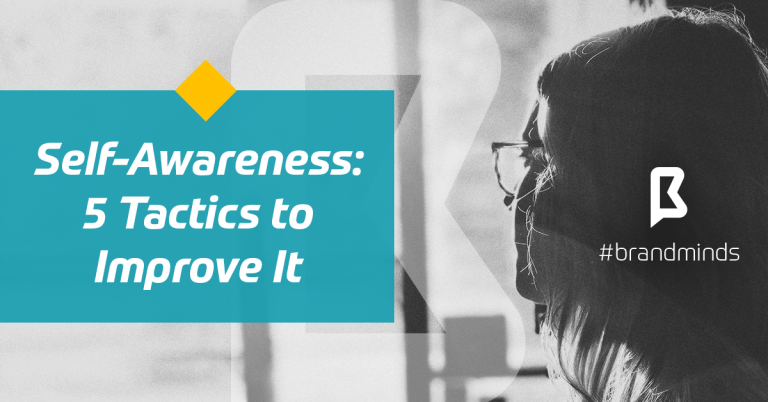
In this article, we are going to take a more hands-on approach to self-awareness and help you discover 5 tactics to improve it.
If you are looking to enhance your personal and professional life, whether you are part of a team or leading one or you’re just setting out to grow and develop as an individual, this article is for you.

1. Monitor your self-talk
Your self-talk combines your conscious thoughts with your unconscious beliefs and biases. It’s an effective way for your brain to interpret and process your daily experiences.
psychologytoday.com
What is self-talk?
Self-talk is your inner voice. Your self-talk is with you the moment you wake up in the morning until you surrender yourself to sleep at night. So it’s important to be aware of what your inner voice is telling you.
Talk to yourself like you would to someone you love.
Brene Brown
Is your self-talk positive or negative?
According to the Laboratory of Neuroimaging at the University of Southern California, a person has seventy thousand thoughts per day. How many of these thoughts are about you? Are they positive or negative? Do you hear criticism? Do you tell yourself you can’t do something, that you’re stupid or that you’re not good enough? If you do, know you have negative self-talk and you need to work on yourself to change it. As it turns out, 70% of people experience negative thoughts so you are not alone.
Researching self-talk, psychologists have found that our inner voice is more complex than breaking it into positive or negative.
Bob Stahl PhD, founder of several Mindfulness-Based Stress Reduction programs and author of 5 mindfulness books, writes about 4 categories of self-talk:
1.Catastrophizing
The catastrophe self-talk plays the worst-case scenario of the future.
It is about worrying: What if this happens? What if that happens? These thoughts amplify anxiety and depression.
2. Blaming
The I am to blame or It’s their fault is another type of self-talk, quite common.
Bob Stahl calls it a mind trap: holding ourselves responsible for another’s pain or holding others responsible for our pain. The problem here is that when you perceive the issue as lying outside of you, you give your power away to effect change.
3. Rehashing
Are you familiar with the saying You can’t undo the past?
For some of us, knowing there is nothing you can do to change the past is comforting and we don’t delve into it. Others are literally tormented by what happened in the past and go over it again and again in an effort to figure something out. The result is a constant state of pain and anguish.
4. Rehearsing
If we’re not concerned about the past, we’re concerned about the future.
Although the future hasn’t happened yet, some of us keep thinking about some future event, playing in their minds the possible ways it may unfold. Same as rehashing, rehearsing is equally painful and debilitating.
Mark Twain said, “I’ve had a lot of worries in my life most of which never happened.” Whatever you worry about, you need to acknowledge the fact that you don’t have control over the future. Instead of worrying, trust your abilities and character – it’s the power within you that will help you deal with any challenges the future might bring.

2. Identify your emotional triggers
You’ve been criticizing yourself for years, and it hasn’t worked. Try approving of yourself and see what happens.
Louise Hay
Emotional triggers are responses to old pains and sufferings. Psychologists call them emotional traumas which we experienced in our childhood and now are coming back to haunt us as adults because we haven’t healed them yet. In action movies there’s always this scene: the villain has caught the hero and he is torturing him by pressing on his open wound. Unlike the hero, we may not be aware that we are suffering from an open emotional wound, which leaves us vulnerable to life’s blows.
Dealing with your emotional triggers is a process. The first step is identifying them.
I feel angry when my partner criticizes me – why?
I feel less worthy when my colleagues don’t take my opinions into account – why?
Once you discover your triggers (by yourself or with the help of a therapist), you can begin to heal.
Self-compassion is one of the tools you can use in your healing process. Self-compassion is defined as the way to relate to self with kindness.
Learn to practices kindness and compassion towards yourself every day. Research has shown a positive correlation between self-compassion and psychological well-being.
Here is how you can practice self-compassion:
- Treat yourself as you would a small child;
- Practice mindfulness;
- Remember that you’re not alone;
- Give yourself permission to be imperfect;
- Work with a supportive therapist or coach.

3. Reframe your thoughts
Brain chemistry adjusts the composition of the blood based upon your perceptions of life. So this means that your perception of any given thing, at any given moment, can influence the brain chemistry, which, in turn, affects the environment where your cells reside and controls their fate. In other words, your thoughts and perceptions have a direct and overwhelmingly significant effect on cells.
Dr. Bruce Lipton, author Biology of Belief
If you think of yourself as being a loser, or ugly, or unworthy of love or success, you are setting yourself up for low confidence and low self-esteem. When you think low of yourself, you set yourself up for unhappiness: you won’t have the energy to take on life’s challenges, you won’t grow and develop your innate skills etc.
Our thoughts have power. Your thoughts create your reality.
I’m sure you came across these sentences before. You may think they are nice words but you don’t actually believe what they say. Well, scientists have found evidence suggesting they are also true. Changing or reframing your thoughts is possible – it’s called neuroplasticity.
Neuroplasticity is the brain’s ability to change and reorganise itself to create new connections between brain cells. That’s how positive thinking is formed and how bad habits can be turned into healthy habits.
Do you self-blame? Are most of your thoughts self-critical?
If you want to reframe your negative thoughts, Deepak Chopra teaches us to learn to differentiate reality from our disempowering interpretation of it, by asking the following questions:
Is it true 100%?
What is it costing you to hold this disempowering interpretation?
What is an empowering interpretation I would rather focus on instead?

4. Practise mindfulness
Mindfulness is the basic human ability to be fully present, aware of where we are and what we’re doing, and not overly reactive or overwhelmed by what’s going on around us.
mindful.org
What are the benefits of practising mindfulness?
Several scientific studies have found that our body and mind benefit galore from mindfulness:
- An enhanced immune function which results in improved physical health;
- Activation of the parts of the brain correlated to positive emotion which leads to greater happiness;
- Growth in higher-functioning regions of the brain like focused attention;
- Protection against age-related DNA damage;
- Overall mental health improvement.
Is mindfulness beneficial to leaders? Does mindfulness improve leadership?
Dr Mathew Lippincott, an expert on organisational leadership, Emotional Intelligence and mindfulness has examined the impact of mindfulness on leadership effectiveness.
Here are the key results of his research:
- Mindfulness enhances cognitive function and recognition of how emotions influence mental performance and behaviours;
- 98% of participants described a transformation of their fundamental understanding of what effective leadership is;
- 79% of participants reported stronger interpersonal relationships resulting from greater authenticity, honesty, and vulnerability in their interactions with others;
- Leadership effectiveness may be achieved more quickly and with a higher rate of success through the incorporation of formal mindfulness training.

5. Know your own worth
I have come to realize that in life, we don’t always get what we want because we only pursue what we think we deserve. That’s why it’s crucial that we believe in ourselves and see ourselves as enough and worthy of the best things life has to offer.
Sara Fabian, women empowerment coach
Do you often think you don’t deserve all you have achieved in life?
Or that it was only by luck that you got your great job?
If you do, you may not know your own worth.
Here’s how to improve your self-worth according to Sara Fabian, Women Empowerment Coach:
- Stop focusing on your weaknesses, flaws, and imperfections without being aware of your natural strengths, gifts, and talents;
- Stop fighting for perfection; perfection is an illusion of the mind, it doesn’t exist;
- Stop punishing yourself for every mistake you make;
- Acknowledge the hard work and efforts behind your achievements instead of attributing your accomplishments to luck or other people who gave you chances to succeed;
- Start being aware of the value you bring to your employers with your personal set of skills and abilities;
- Stop being a people-pleaser, your time means life and it’s never coming back.
Become a better leader through self-awareness – 2018 study
What is self-awareness?
Self-awareness is understanding your own self. It means having a really good understanding of your emotions, as well as your strengths, limitations, attitudes, values and motives.
What does self-awareness have to do with leadership?
Part of being self-aware is knowing what emotions or feelings drive your behaviours. The moment you realise what triggers your behaviours you begin to understand about others’ actions and behaviours.
A 2013 analysis performed by Korn / Ferry Institute found that self-awareness appears to correlate with overall company financial performance. The companies with the greater percentage of self-aware employees consistently outperformed those with a lower percentage.
You are not working with machines, you are working with people.
As a leader you need to be aware of the emotions driving your team members. Surprisingly (or not!) being blind to the human factor was one of the reasons which contributed to Nokia’s demise from being the world’s best mobile phone company (read Why did Nokia fail?).
Building healthy relationships with employees is the leader’s most important goal. In our previous article we talked about what you need to do to achieve this goal.
Self-awareness in leadership – 4-year research
Dr. Tasha Eurich is an organizational psychologist and executive coach, with a 15-year professional experience witnessing the power of self-awareness in leadership.
For the past four years, together with her team of researchers, Dr. Eurich has been conducting a large-scale scientific study of self-awareness. The study consisted of 10 separate investigations with nearly 5,000 participants. The study’s objective was to examine what self-awareness really was, why leaders needed it, and how could leaders increase it. She will be publishing her results soon. Until then, she turned to Harvard Business Review to talk about the most important findings of her research.
Here are the 3 most important conclusions of the self-awareness study as detailed by Dr. Eurich:
- There Are Two Types of Self-Awareness
- Experience and Power Hinder Self-Awareness
- Introspection Doesn’t Always Improve Self-Awareness
1. There are two types of self-awareness: Internal self-awareness – External self-awareness
Self-awareness refers to the following subjects of interest:
- Values;
- Passions;
- Aspirations;
- Fit with your environment;
- Thoughts;
- Feelings;
- Behaviors;
- Strengths;
- Weaknesses;
- Impact on others.
Dr. Eurich has discovered two categories of self-awareness: internal and external.
The internal self-awareness is about how clearly we see the subjects listed above.
We’ve found that internal self-awareness is associated with higher job and relationship satisfaction, personal and social control, and happiness; it is negatively related to anxiety, stress, and depression.
Dr. Tasha Eurich
The external self-awareness is about how others view us in relation to them.
For leaders who see themselves as their employees do, their employees tend to have a better relationship with them, feel more satisfied with them, and see them as more effective in general.
Dr. Tasha Eurich
The researchers assumed that a leader who is high on internal self-awareness would be high on external self-awareness as well. The results proved them wrong: there is virtually no relationship between them.
Dr. Eurich and her team identified four leadership archetypes, each with a different set of opportunities to improve:
- The Introspectors;
- The Seekers;
- The Aware;
- The Pleasers.
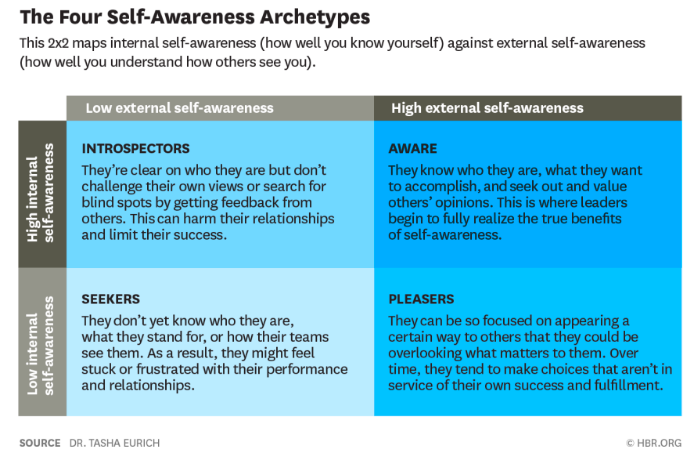
Here is what Dr. Eurich recommends:
- Don’t fall into the trap of valuing internal self-awareness over external self-awareness or the other way around;
- You need to actively work on both of them: seeing yourself clearly and getting feedback to understand how others see you.
Are you curious to discover how self-aware you are?
Dr. Eurich developed a 5-minute quiz to help you learn more about how you. Follow the instructions here.
2. Experience and Power Hinder Self-Awareness
Dr. Eurich found a surprising discrepancy between believing to be self-aware and actually being self-aware.
Even though most people believe they are self-aware, only 10-15% of the people we studied actually fit the criteria.
How do researchers explain this finding?
The more power a leader holds, the more likely they are to overestimate their skills and abilities.
This happens because senior leaders have fewer people above them who can provide candid feedback. And also because the more power a leader wields, the less comfortable people will be to give them constructive feedback, for fear it will hurt their careers. These leaders have less willingness to listen to feedback – they think they know more than their employees.
How to prevent this from happening to you?
Dr. Eurich found that people who improved their external self-awareness did so by seeking out feedback from loving critics — that is, people who have their best interests in mind and are willing to tell them the truth.
3. Introspection Doesn’t Always Improve Self-Awareness
The problem with introspection – you’re not doing it correctly!
Introspection is the process of examining the causes of our own thoughts, feelings, and behaviors. One can assume introspection leads to self-awareness. It is a correct assumption only if the introspection is done correctly. But most people are doing it wrong.
Seeking the reasons behind a particular reaction or behaviour must be an activity conducted with objectivity. Unfortunately the combination of previous life events and a low self-esteem or self-worth may drive us to the wrong conclusions.
Instead of allowing a negative inner critic from answering the introspecting questions, Dr. Eurich recommends replacing “Why” with “What”. Her research found that highly self-aware people asked themselves “why” less than 150 times, but asked themselves “what” more than 1000 times.
So instead of asking Why did Jane (your employee) gave me a negative feedback?, you should be asking yourself What are the steps I need to take in the future to do a better job?
“What” questions help us stay objective, future-focused, and empowered to act on our new insights.
Conclusions
To become a better leader through self-awareness you need to do the following:
- Focus on building both internal and external self-awareness;
- Seek honest feedback from loving critics;
- Ask what instead of why.
The Strong Link Between the Effective Coaching and the Emotional Intelligence
A research published in the Journal of Experiential Psychotherapy (Stillman, Freedman, Jorgensen, & Stillman, 2017) showed once again, if still necessary, the powerful link between EQ and effective coaching, both for coaches and clients. The research was based on a survey of over 1100 coaches and clients from 88 countries conducted by Six Seconds, a global pioneer in emotional intelligence.
The goal of the survey was to understand what blocks clients’ progress, what methods are most powerful for coaching, and why is EQ important in coaching?According to the results, sixty-two percent of responding coaches reported using some form of assessment, with 32% employing an EQ-based tool. Incorporating an EQ assessment, such as the Six Seconds SEI, into coaching practice can provide actionable data to support change. Then, using the Six Seconds Change MAP, coaches can facilitate the emotional transformations that help people move forward.
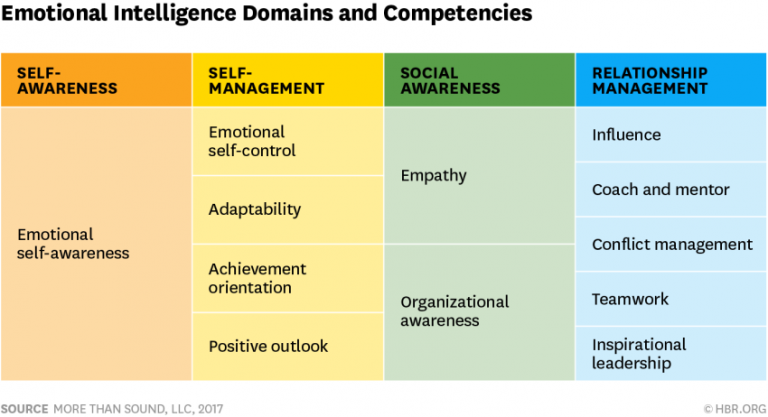
At the same time, survey respondents identified a number of priorities for making coaching powerful, including client-focused reflective questions, active listening, and working mindfully with emotional strengths. Coaching with EQ creates meaning and possibility, infusing the process with self-awareness, meaningful decisions, and informed goal setting.
The Six Seconds EQ model focuses on the development of practical action plans for everyday life. Based on three pursuits, Know, Choose, and Give Yourself (KCG), the model contains 8 EQ competencies that can be cultivated to enhance self-awareness, decision-making, and connection. The Six Seconds’ Emotional Intelligence (SEI) assessment measures these pursuits and competencies and is debriefed with the client by a certified coach.
